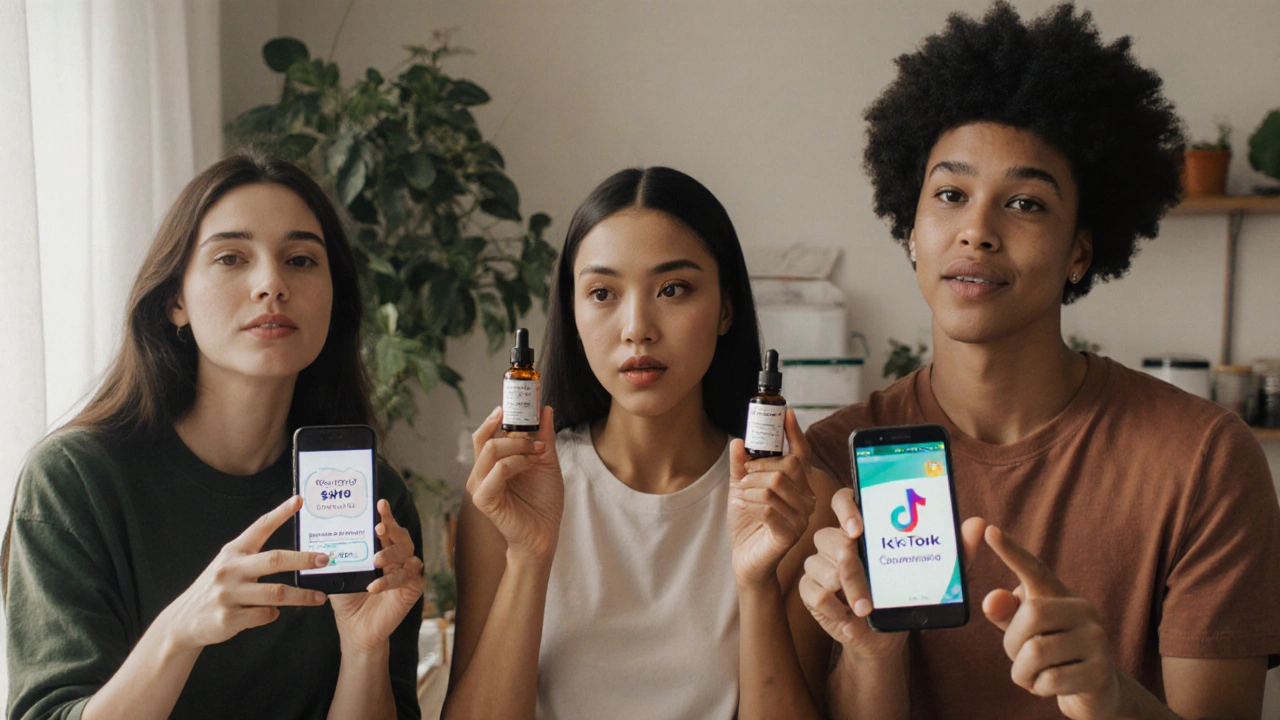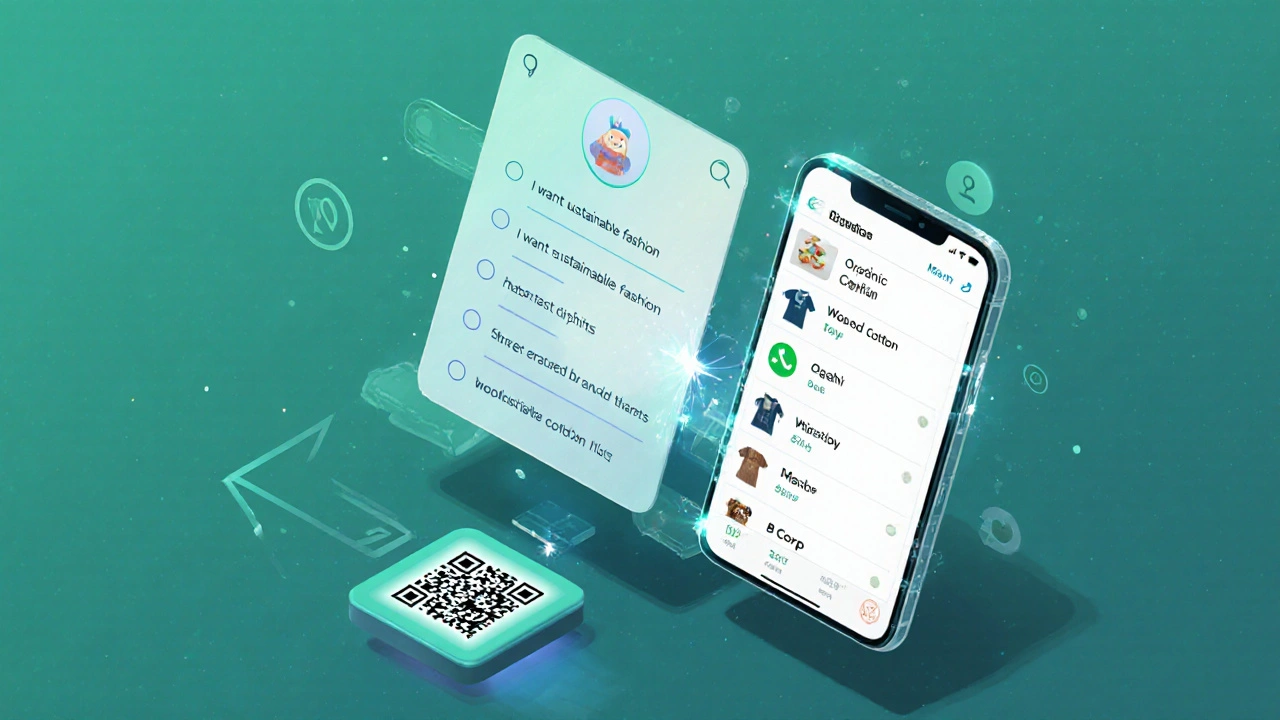Affiliate Commission Calculator
Flat Rate
10% per sale
Tiered Structure
5% (0-50) / 7% (51-100) / 10% (100+)
Lifetime Value
15% base + 5% for repeat customers
Your Estimated Earnings
Five years ago, affiliate marketing was mostly about blog links and discount codes. Today, it’s a multi-billion-dollar engine powered by AI, TikTok creators, and smart tracking systems that know more about your habits than your phone does. If you’re still using old-school banner ads and generic product links, you’re already behind. The future of affiliate marketing isn’t about pushing more links-it’s about building trust, leveraging data, and working with real people who have real audiences.
AI Is Now the Co-Pilot for Affiliates
Artificial intelligence isn’t replacing affiliates-it’s making them smarter. Tools like Jasper, Copy.ai, and even custom GPTs built for affiliate marketers now help write product reviews, generate email sequences, and optimize landing pages in minutes. But the real game-changer? Predictive analytics. Platforms like Impact and ShareASale now use machine learning to predict which products will convert best for your audience before you even promote them. One affiliate in Texas saw a 217% increase in commissions after switching from manual product selection to an AI-driven recommendation engine that analyzed his readers’ past clicks, time on page, and even weather patterns (yes, people buy more sunscreen when it’s hot).
AI also handles compliance. If you’re promoting health supplements or financial tools, the FTC and GDPR rules can trip you up fast. New AI tools scan your content in real time and flag phrases like "guaranteed results" or "clinically proven" if they’re not backed by documentation. No more accidental violations. Just clean, compliant promotions that actually work.
Influencers Are the New Publishers
The days of generic blogger networks are fading. Today’s top earners aren’t running SEO-heavy review sites-they’re micro-influencers with 10,000 to 100,000 followers who post authentic, unscripted content on TikTok, Instagram Reels, and YouTube Shorts. A study by Influencer Marketing Hub found that nano-influencers (under 50K followers) generate 8.7% engagement rates, compared to 1.6% for celebrities. That’s not a typo. People trust their peers more than polished ads.
Brands are catching on. Companies like Gymshark, Fabletics, and even Shopify now run exclusive affiliate programs just for TikTok creators. These programs offer higher commissions, early access to products, and custom promo codes tied to individual creators. One Australian beauty influencer, @skinbyjess, made over $42,000 in three months by simply posting 30-second videos showing her morning routine with a new serum. No blog. No email list. Just honest reactions and a link in bio.
Dynamic Commission Structures Are Taking Over
Flat-rate commissions? Out. Tiered, behavior-based payouts? Here to stay. Instead of paying $10 per sale, networks now reward affiliates based on customer lifetime value. If someone buys once and comes back three times, you get a bonus. If they refer a friend? Another bonus. Some platforms even pay for engagement-like if someone watches your video for 75% of its length or clicks through to the product page, even if they don’t buy right away.
Amazon Associates still pays 1-10% per sale, but newer programs like Rakuten, Awin, and CJ Affiliate offer up to 30% for high-LTV products like software subscriptions or premium fitness gear. One affiliate in Perth started promoting a $299 home gym system with a 25% commission. He didn’t sell 100 units-he sold 12, but 8 of those customers upgraded to the premium version six months later. His total payout? Over $14,000 from just 12 sales.

Content Is Still King, But Format Is Changing
Long-form reviews still work, but they’re no longer the only path to success. Video reviews, interactive quizzes, and even audio guides are now top performers. A fitness affiliate in Canada created a 5-minute audio walkthrough called "Which Home Workout Tool Fits Your Life?"-it played during morning commutes and generated 2,300 clicks in two weeks. The affiliate link was embedded in the show notes, and the conversion rate was 14%.
Interactive tools are rising fast. Think: "Find Your Perfect Skincare Routine" quizzes that end with a product recommendation. Or comparison sliders that let users drag between two products to see differences in price, ingredients, and features. These aren’t just fun-they’re conversion machines. One SaaS affiliate reported a 42% increase in sign-ups after adding a custom ROI calculator to their landing page. Users didn’t just click-they stayed, engaged, and bought.
Privacy Changes Are Reshaping Tracking
Apple’s ATT, Google’s cookie deprecation, and stricter EU laws have made traditional tracking unreliable. But affiliate networks aren’t crumbling-they’re adapting. First-party data is now the gold standard. That means collecting emails, phone numbers, or account sign-ups directly from your audience. Many top affiliates now offer a free checklist, template, or mini-course in exchange for an email. Then they use that list to send personalized product recommendations.
Contextual targeting is also growing. Instead of tracking your past clicks, platforms now analyze the page you’re on. If you’re reading an article about "best protein powders for women over 40," the affiliate system automatically serves relevant products-even without cookies. It’s less precise than old tracking, but it’s legal, ethical, and surprisingly effective.
Mobile-First Is Non-Negotiable
Over 78% of affiliate traffic now comes from mobile devices. If your landing page takes more than 2.5 seconds to load on a phone, you’re losing half your potential customers. That’s not opinion-it’s data from Google’s 2025 Mobile Performance Report. Top affiliates are using AMP pages, lazy-loading images, and one-click checkout flows optimized for thumb navigation.
Even the way links are shared is changing. QR codes on Instagram Stories, swipe-up links in TikTok bios, and WhatsApp-based product catalogs are now common. One affiliate in Brazil started using WhatsApp Business to send personalized product lists to followers who asked for recommendations. His average order value jumped 63% because people felt like they were getting advice from a friend, not a sales bot.

The Rise of Niche-Specific Networks
Generic affiliate networks like Amazon Associates are still useful, but they’re no longer the best option for serious earners. Niche networks are popping up everywhere: affiliate marketing for eco-friendly products, for pet tech, for mental health apps, for sustainable fashion. These networks offer higher payouts, better support, and products that actually match their audience’s values.
For example, EcoAffiliates connects promoters with brands that are B Corp certified. Their average commission is 22%, and their conversion rate is 3x higher than mainstream networks because their audience cares about ethics, not just price. If you’re promoting to eco-conscious moms, don’t push cheap plastic toys from Amazon. Find the network that specializes in wooden, non-toxic toys. Your audience will thank you-and your wallet will too.
What Doesn’t Work Anymore
Here’s what’s dead:
- Buying traffic from clickbait sites
- Using fake testimonials
- Spamming Facebook groups with links
- Ignoring disclosure rules (FTC fines are up 140% since 2023)
- Assuming your audience doesn’t know how to Google
People are smarter now. They cross-check reviews. They read the fine print. They mute ads. If your strategy relies on deception or volume, it’s collapsing. The winners are the ones who add value-whether that’s a real comparison, a personal story, or a tool that saves time.
Where to Start in 2025
Don’t try to do everything. Pick one trend and test it:
- Find a niche affiliate network (try Awin or Impact for starters)
- Choose one product category you genuinely care about
- Create one piece of content in a new format-video, quiz, or audio
- Track results for 30 days
- Double down on what works
The future of affiliate marketing isn’t about being the loudest. It’s about being the most useful. The people who win aren’t the ones with the biggest budgets-they’re the ones who listen, adapt, and build real relationships.
Is affiliate marketing still worth it in 2025?
Yes-but only if you adapt. The old model of posting links on blogs and hoping for clicks is dead. The winners now use AI tools, create authentic video content, work with micro-influencers, and focus on high-value niches. If you’re willing to learn new skills and prioritize trust over volume, affiliate marketing can still generate serious income.
What’s the best affiliate network for beginners?
Start with Rakuten Advertising or Awin. Both have low barriers to entry, offer a wide range of products, and provide good reporting tools. Amazon Associates is easy to join but pays less and has strict rules. Avoid networks that require upfront fees-they’re usually scams.
Do I need a website to do affiliate marketing?
No. Many top earners use only Instagram, TikTok, or YouTube. But you still need a way to track links-like a Linktree or Bitly account-and a method to collect emails if you want to scale. A website helps with SEO and credibility, but it’s not mandatory.
How much money can you really make with affiliate marketing?
It varies wildly. Most people make under $500/month. But those who focus on high-ticket items, use video content, and build email lists regularly earn $5,000-$50,000/month. One affiliate in Australia makes $22,000/month promoting premium skincare tools to women over 40-using only TikTok and WhatsApp.
How do I avoid getting banned from affiliate programs?
Follow the rules. Never fake reviews, buy fake clicks, or hide your affiliate links. Always disclose that you earn commissions. Use approved creative assets. And never promote illegal or misleading products-like weight loss pills with false claims. Most networks use AI to detect fraud. If you’re honest and transparent, you’ll stay in good standing.
If you’re ready to start, pick one product you love, find a niche network, and create one piece of content that feels real-not salesy. The rest will follow.


I'm Eliza Galloway, a dedicated and passionate marketing professional with over two decades of experience in the field. Apart from my day-to-day analyses of market trends, I spend my time exploring and implementing comprehensive marketing strategies for a broad range of local and international clients. I'm also an avid blogger, particularly passionate about online marketing. Sharing my knowledge and insights via my writings, I seek to motivate and inspire others in understanding the dynamic world of marketing.